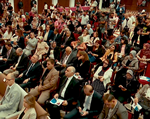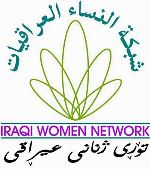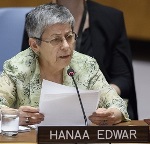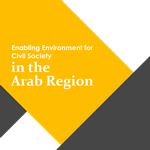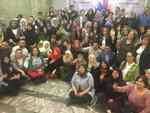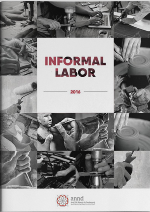Iraq
Published on Thu, 2020-05-14 12:11
The COVID-19 health crisis added to the multidimensional crises in the Arab region and their manifestation in conflicts, wars, economic and social inequalities, and the increasing number of refugees and migrants. It could lead to severe repercussions at the economic, social, and political levels. According to an ESCWA preliminary estimate, the region will lose at least USD42 billion in 2020 due to the Corona pandemic. ESCWA also considered that the global spread of the virus and the growing impact of low oil prices could aggravate income losses. Unemployment is expected to increase by 1.2 percentage points, meaning the loss of around 1.7 million jobs. The Arab region registers some of the highest rates of inequality around the world, and informal employment accounts for 50% of jobs. It also lacks universal social protection systems and is thus unable to protect workers and ensure their dignity during work stoppages.
|
Published on Mon, 2019-10-07 12:13
For the first time since 2003, Baghdad hosted last August a regional conference on gender issues, co-organized by the government, civil society and UN agencies. The Forum discussed the role of the various institutional mechanisms for women operating in the Arab region and promoted the establishment of an independent national body for women's empowerment in Iraq. Reporting on the debate, the Iraqi Al-Amal association concludes that ‘effective institutional mechanisms are required to confront the challenges that hinder women's rights in the Arab region, especially during and after conflicts, and to confront the Israeli occupation, terrorism, extremism, religious radicalism, patriarchal mentality, tribal norms and corruption, and policies of exclusion and marginalization of qualified and active women in decision-making positions.’
|
Published on Thu, 2018-12-06 18:25
Iraqi Women Network proposes to Iraqi leadership the creation of the National Council for Women’s Empowerment, as an independent national mechanism for women’s affairs in Iraq. The proposal was discussed with the President Barham Saleh. Since long time, Iraqi Women Network has been advocating to create an active partnership between various state authorities and along with CSO’s, media and gender studies and research centres to improve the status of women in Iraq and increase the role of women in realising stability, security, peace building, justice and development.
|
Published on Mon, 2018-09-17 12:50
Iraqi civil society organizations expressed their shock and disappointment at the format, methodology and content of the 2018 report by the Iraqi government on the implementation of the recommendations of 2014 of the CEDAW (Convention on the Elimination of Discrimination against Women). They argue that the report does not responds to the principles and texts of CEDAW on non-discrimination, equality and State commitment, as a frame of reference in the presentation and analysis of information, data and activities to measure progress. The crimes of honor or honor killings are not considered discrimination against women, but the official report denies the existence of cases of impunity in Iraq.
|
Published on Fri, 2018-06-08 14:12
Ms. Hanaa Edwar, Chairperson of Iraqi Al-Amal Association, participated at the UN Security Council Open Debate on the Protection of Civilians in Armed Conflicts that was held in New York, 22nd May 2018.
Hanaa highlighted that civilians who have suffered must have access to justice and accountability. The Security Council Resolution in 2017 on Da’esh accountability, and the Joint Communique on the Reduction and Response to Sexual Violence in Armed Conflict signed in September 2016 are crucial documents and she urge to support their implementation.
She said there must be accountability for all harm committed in Iraq by all parties to the conflict. Accountability should not be limited to some people and some types of violations. All civilians deserve redress for their suffering. This must be clearly linked to reconciliation efforts.
|
Published on Fri, 2017-11-03 12:04
The Global Justice Center, the Eyzidi Organization for Documentation, the Iraqi Al-Amal Association, the Iraqi Women Network, Madre and Yazda sent an open letter addressed to Prime Minister Haider al-Abadi, to the chief of High Judicial Counil and to Mr. Ibrahim Jaafari- Foreign Minister regarding the Terms of Reference for UN Security Council resolution 2379 (2017) on Daesh accountability.
The CSOs demand that those ToR, which are currently being drafted, have a gender justice and a victim-centered approach. In particular, the recommendations stresses the need for identifying an applicable legal framework for war crimes, crimes against humanity and genocide, legal reform, ensuring investigative efficiency, gender expertise, due process, victim and witness protection, community outreach and civil society engagement.
|
Published on Wed, 2017-09-27 15:09
The Arab NGO Network for Development (ANND) launched a book on the enabling environment of civil society in the Arab region. The publication aims to present an overview of the current situation of civil society organizations in Tunisia, Egypt, Lebanon, Iraq, Syria, and Palestine. It uses several country-specific indicators regarding the establishment of civil society organizations and their success. The current conflicts raging in the Arab region constitutes a serious challenge, especially in lack of attention to laws regarding the work of civil associations, in addition to the shifts faced in funding.
The publication highlights several legal challenges, especially those resulting from the lack of commitment to the principles of the separation of powers, as applied by democratic societies, as laws and regulations are often politicized. The book includes several recommendations to invigorate the work of civil society organizations in the regional, in order to consolidate the values of justice, equality, and sustainable development.
|
Published on Thu, 2017-09-07 20:27
The Iraqi Women Network held a national conference in Mosul after the city was recovered by the government, with the participation of women from various cities in Iraq, civil society activists and women who have resisted the culture of violence, exclusion and terrorism during the rule of ISIS.
The conference declaration stresses Iraqi women’s determination to play a real role in the process of political reform "to eliminate the abhorrent sectarian system and combat against corruption, and insuring accountability and no impunity for the criminals or anyone involved in corruption, and building a state of institutions based on respect for human rights and the principles of citizenship and integrity."
|
Published on Fri, 2017-05-12 15:43
“Informal labor is not a marginal issue in Arab countries. It is a core component of modern Arab economies and the distribution of work therein and is doomed to expand under current policies,” explained Samir Aita, lead researcher of the Arab NGO Network on Development (ANND) at the launch of the 2017 edition of the Arab Watch on Economic and Social Rights, last May 8 in Beirut.
The report, launched publicly at the American University, concludes that the “highest percentages of lack of formality are in countries with the least strict laws and bureaucracies, and vice versa. This goes against the stereotype that says that informality is a result of strict laws and bureaucracies.” It also concludes that “informal labor in Arab countries is mostly waged labor, except in rare cases, which contradicts another idea that says that informal labor is a choice, as young people entering the job market have no choice but to find any type of livelihood, no matter how fragile or temporary.”
|
Published on Wed, 2016-08-17 23:36

Photo: IAA
|
Iraqi Al-Amal Association (IAA), Social Watch focal point in Iraq, conducted its second workshop in Beirut, to discuss the draft bill on “Protection against Domestic Violence".
Activist Hanaa Edwar head of IAA said "Our aim is to explain and discuss the important bill, and to work with the MPs and consultants, in order to reach the full conviction required to adopt and defend this bill, which we hope that the current session of the House of Representatives will be able to vote on and pass it”. Adding: "this law will be a real shield against domestic violence, committed by one family member against another reaching to a relative of the fourth degree, mostly women and children are the victims of such practices, which constitute a hidden crime. The bill includes mechanisms for the protection of victims such as creating safe centers and providing the necessary care and rehabilitation, and to punish the perpetrators of these crimes. Also, there are other steps that could be taken by the media and civil society organizations and other parties to limit the phenomenon of domestic violence, which escalated to levels that cannot be tolerated”.
|
SUSCRIBE TO OUR NEWSLETTER
Submit

|


